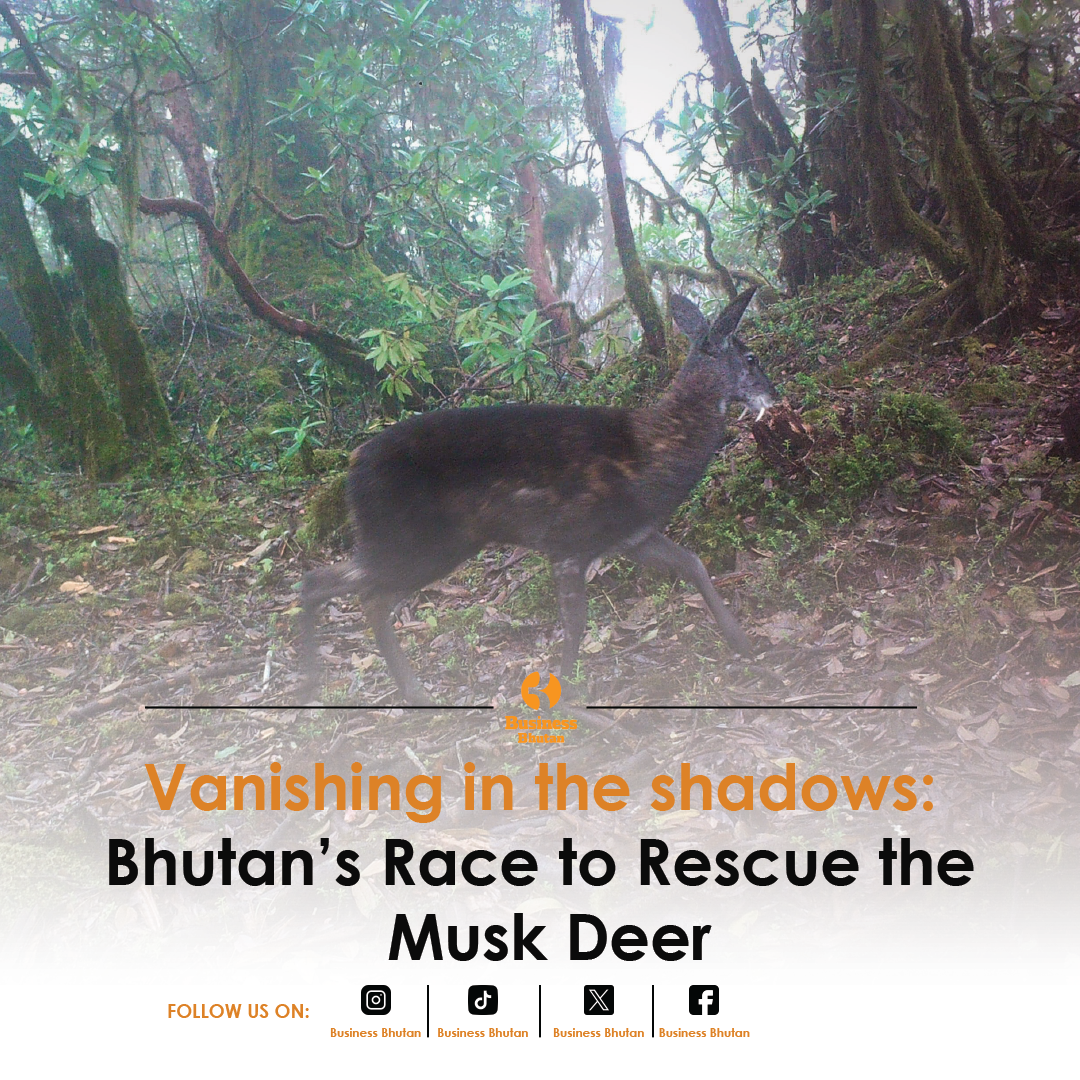In a bold and timely move to protect one of Bhutan’s most elusive and ecologically vital species, WWF-Bhutan, in partnership with the Royal Government of Bhutan, has launched the “Prevention of Extirpation of Musk Deer in Bhutan” project. This ambitious four-year initiative seeks to halt the alarming decline of musk deer populations—a species that, despite Bhutan’s exemplary conservation record, continues to face severe threats from poaching and habitat pressures.
Supported by WWF Switzerland and implemented through the Department of Forest and Park Services (DoFPS) under the Ministry of Energy and Natural Resources (MoENR), the project adopts a holistic conservation model, combining scientific research, law enforcement, community engagement, and sustainable livelihood interventions. It reflects Bhutan’s unwavering commitment to safeguarding biodiversity, especially species that, though less celebrated than tigers or elephants, are critical to maintaining ecosystem balance.
At the heart of the initiative is the first-ever national population survey of musk deer, which will establish essential baseline data on their distribution, habitat conditions, and threats. This information will underpin a comprehensive conservation action plan aiming to reduce poaching pressure by at least 50% in priority habitats by 2029.
To strengthen enforcement and monitoring capacity, 312 rangers have been trained in musk deer monitoring techniques and conservation law enforcement. Critical musk deer habitats will be mapped and integrated into Bhutan’s Spatial Data Services System (SDSS), enabling synchronized patrols across key landscapes to prevent illegal activities effectively.
The project also prioritizes community-centered solutions. Communities residing near musk deer habitats will be supported with alternative livelihood opportunities to reduce dependence on poaching. Simultaneously, education and awareness campaigns will highlight the ecological importance of musk deer, emphasizing how their survival supports broader forest health and biodiversity.
Musk deer, classified as Endangered by the IUCN and listed in Appendix I of CITES, play a pivotal role in maintaining healthy forest ecosystems. Their selective grazing helps regulate undergrowth, supporting plant diversity and providing prey for apex predators such as snow leopards and tigers. Despite legal protection under Bhutan’s Forest and Nature Conservation Act (2023), illegal hunting driven by the lucrative black-market trade of musk pods—valued at up to US$50,000 per kilogram—remains a pressing challenge. These pods are highly prized in traditional medicine and the global perfume industry.
The initiative addresses these threats through a multifaceted approach: strengthening enforcement capacity, curbing illegal hunting, empowering local communities with sustainable economic alternatives, and conducting awareness programs to reduce demand for musk products.
Karma Tenzin, Director of DoFPS, emphasized the initiative’s strategic importance: “This is a pioneering effort. By leveraging data from SMART (Spatial Monitoring and Reporting Tool), we can better understand our conservation challenges and deploy targeted solutions.”
René Kasper, Project Coordinator from WWF Switzerland, highlighted Bhutan’s forward-thinking model: “While musk deer may not have the public profile of tigers or elephants, their ecological role is irreplaceable. Bhutan demonstrates that conservation must integrate ecological needs with the well-being of local communities—a lesson for the world.”
The project has already achieved notable milestones, including the training of 80% of rangers in critical musk deer landscapes and the development of a comprehensive conservation action plan. Early outcomes indicate that household incomes in communities near key habitats have improved, fostering stronger engagement in conservation practices and sustainable livelihoods.
As the initiative progresses, Bhutan aims to showcase how targeted conservation efforts, underpinned by community participation, can secure the survival of musk deer while ensuring the long-term health of its forests. WWF Bhutan remains steadfast in its mission to conserve the country’s rich biodiversity and promote sustainable development, and this initiative exemplifies Bhutan’s innovative approach to harmonizing ecological preservation with socio-economic realities.
Sangay Rabten from Thimphu
















